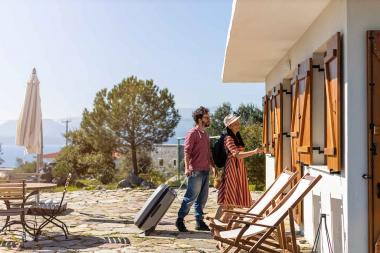The providers act according to the principle of camouflage and deception, the advertisement and the initial contact are inviting and appear professional. Sometimes even total fakes of travel insurance policies are sent out. No wonder that holidaymakers easily stumble across such perfidiously designed pitfalls, because only the beautiful photos are genuine, but the offer on an established booking platform may not be. The first pandemic year 2020 was already a record year and this year, too, we are expecting an increase in trickery.
The Association of German Holiday Home Agencies and the ECC network are receiving more and more complaints from victims. After making an advance payment for the reservation, customers are surprised that the supposed accommodation providers do not contact them again. The offer for the summer stay was incredibly cheap, so often the majority or even the full rental price is willingly paid in advance.
Quote from an injured party:
"I feel the same way - €400 gone. After researching, I found the actual landlord of the holiday home. He has already filed a complaint. His photos were used. Everything looked serious. The booking request was made via the website, everything else via email. Even received a security policy..."
Particularly dramatic are cases where holidaymakers really arrive at the holiday destination in good faith to meet the landlord to hand over the keys. It has happened that after booking and receiving deceptively genuine-looking booking documents, tourists only realise the fraud when they arrive and are blindsided when no one shows up at the agreed meeting point. The booked finca in Mallorca does not exist. Due to the promised discount, they did not pay much attention to suspicious details, the fake bargain was a trap from the beginning.













